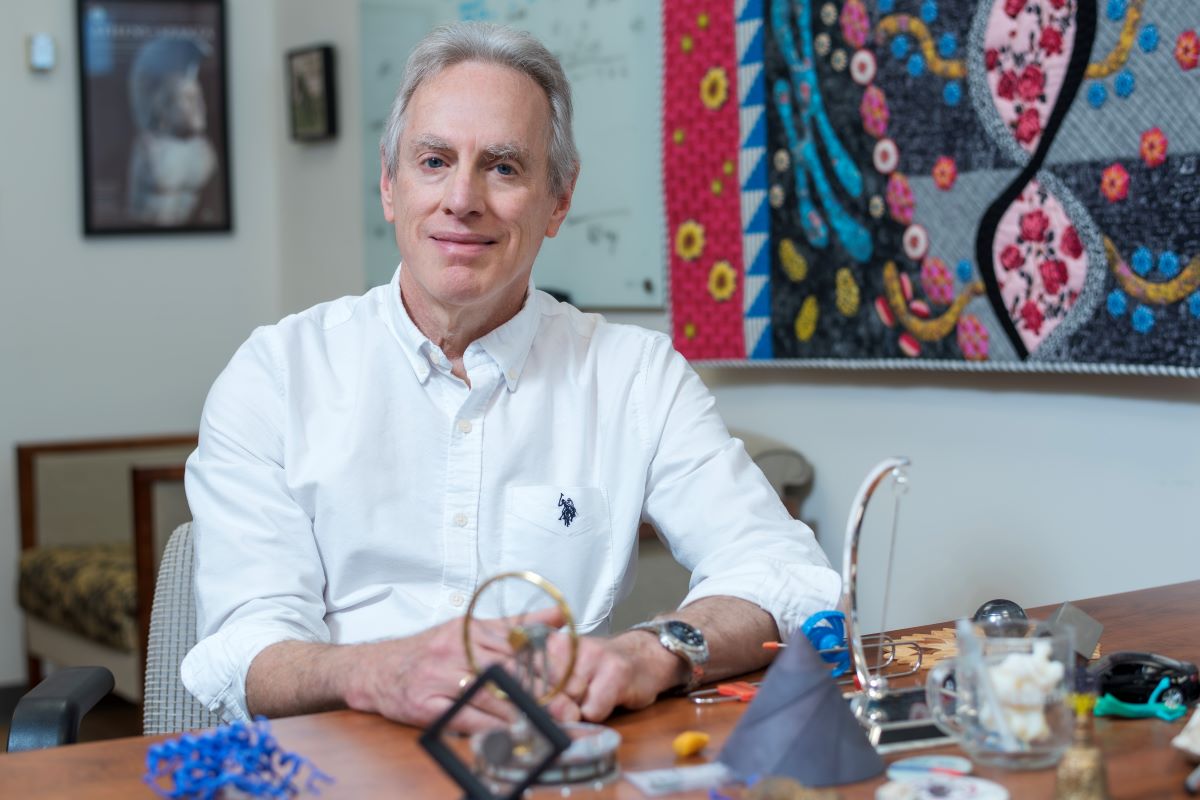
PHILADELPHIA (June 23, 2025) — Scientists at Fox Chase Cancer Center have identified a mutation in a common oncogene — a gene that can cause cancer — that may play an important role in colon cancer. Researchers also showed how this mutation could be targeted therapeutically.
The recently published study offers new insights into KRAS, a gene that’s known to be involved in almost half of all cancers. It could be a step toward developing “ultrapersonalized” treatments for colon cancer, with therapies that precisely target not just the specific genes involved in a patient’s cancer but individual mutations of that gene.
“The implication is that if you are a person with this particular type of KRAS mutation — which is not rare — then you might benefit from a particular combination of therapies that would not work if you had another type of KRAS mutation,” said Jonathan Chernoff, MD, PhD, an oncologist and Cancer Center Director at Fox Chase. Chernoff was senior author on the study.
KRAS is one of the oldest known oncogenes linked to cancer. KRAS mutations are especially prevalent in colorectal cancer and are associated with worse prognosis and increased resistance to treatment. Over the last decade, a number of new therapies have been developed to target the protein encoded by this oncogene.
Almost from the beginning, scientists realized that the KRAS gene can have many different mutations; however, they believed that there were not significant functional differences between these variants. More recent research has shown this is not the case and that certain mutations may have unique properties.
For the new study, researchers wanted to understand if there were functional differences between three distinct KRAS mutations commonly found in colon cancer.
They used CRISPR gene editing technology to create mouse colon cells that were identical in every way except for the KRAS mutation they contained. Then they analyzed differences in how the cells functioned.
One mutation, called KRAS G12V, stood out from the others.
All three mutations are involved in creating a molecule called acetyl-CoA, an important building block for fatty acids and proteins. However, researchers saw that KRAS G12V synthesized acetyl-CoA very differently, using a different enzyme than the other variants to form the molecule.
“Acetyl-CoA is like a Lego brick — the ultimate one — because you can make a lot of things out of it,” Chernoff said. “It’s one of the most important metabolites in a cell. So anytime you have a situation where you think this molecule is being made differently, that’s interesting. And 90% of the time it’s not made the way that these G12Vs are making it.”
Blocking the specific enzyme used by KRAS G12V could prevent it from synthesizing acetyl-CoA at all, potentially creating a new therapeutic target, Chernoff said. Researchers were able to demonstrate this sensitivity in additional experiments in both cell lines and mice.
“This offers the first really direct attack on this particular type of mutation,” Chernoff said.
Next, researchers hope to test the finding in human cell and organoid-based models of colon cancer. They are also interested in conducting similar studies in pancreatic and lung cancer, two other types of cancer where KRAS mutations are often present.
The paper, “KRAS G12V Mutation-Selective Requirement for ACSS2 in Colorectal Adenoma Formation,” was published in Cell Reports.